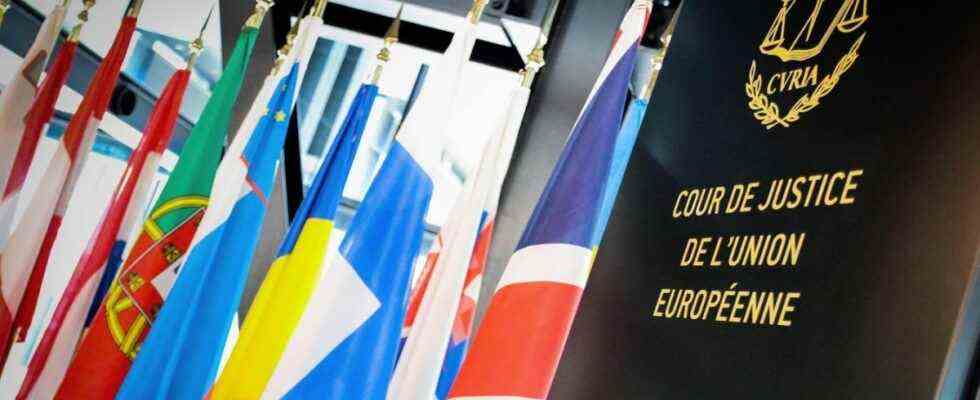Hungary and Poland may face high financial losses because, according to the EU Commission, the rule of law is being undermined there. The European Court of Justice (ECJ) has cleared the way for applying the new rules for punishing corresponding violations in the EU. The judges declared the so-called rule of law mechanism “in its entirety” to be legal. This means that the Commission could soon initiate proceedings against countries such as Hungary and Poland in order to ultimately cut funds from the EU budget.
Specifically, the ECJ proceedings are about the “Regulation on the conditionality of the rule of law”, which has been in force since the beginning of 2021. It is intended to ensure that violations of principles such as the separation of powers no longer go unpunished if they threaten to misuse EU money. On the other hand, Poland and Hungary, who see themselves as the focus of the new instrument, have lodged a complaint with the ECJ. Rule of law proceedings under Article 7 of the EU treaties are underway against both countries. Despite international criticism, Poland is restructuring the judiciary, and the Hungarian government has been criticized for its refugee, media, university and judicial policies.
The EU is founded on shared values, including the rule of law and solidarity, said the court. “Since respect for common values is thus a prerequisite for enjoying all the rights that derive from the application of the Treaties to a Member State, the Union must also be able to defend these values within the framework of the tasks entrusted to it. ” The budget is “one of the most important instruments” of the EU, according to the statement by the ECJ. If there is a risk that a member state will not use EU money in its interest, the economic interests of the EU are also adversely affected. And if there is a “real connection” here, you can link the payment to appropriate conditions.
EU Commission President Ursula von der Leyen welcomed the verdict. Based on this, guidelines will now be developed on how to apply the rule of law mechanism in concrete terms, she shared. The Commission wanted to wait until the verdict had been reached. The heads of state and government agreed on this in the summer of 2020 in order to get the governments in Budapest and Warsaw to give up their blockade on important EU budget decisions. Von der Leyen emphasized: “I promised that no case would be lost. And I kept the promise.” The European Parliament in particular is putting pressure on and has even sued the Commission for its hesitance before the ECJ – this procedure is still ongoing.
It may take some time before payments are reduced
Poland and Hungary get billions from the community budget every year. Funding cuts are unlikely to happen too quickly, however. First of all, there is a formal argument against this: the EU Commission wants to finalize the guidelines for the application of the procedure, taking the judgment into account.
But political considerations are probably more important: In Hungary, a new parliament will be elected at the beginning of April. If the Commission were to take the first steps beforehand, this could be seen as interference in the election campaign. It was only at the weekend that Prime Minister Viktor Orbán attacked the EU during an election campaign and also hinted at the possibility of leaving: It was waging “a holy war”, a “rule of law jihad” against his country. After the verdict, Hungary responded with serious allegations. “The decision is living proof of how Brussels abuses its power,” Justice Minister Judit Varga wrote on Twitter.
Poland, on the other hand, recently indicated a willingness to compromise in the ongoing dispute with the EU over its judicial reforms. MPs from the ruling Law and Justice party (PiS) presented a draft law last week that would no longer subject judges to the highly controversial disciplinary body, which the EU Commission sees as a threat to judges’ independence. In addition, Poland settled a dispute with the Czech Republic, which had also concerned the ECJ and in which Poland ignored a decision by the judges.
With material from the dpa news agency

